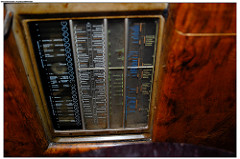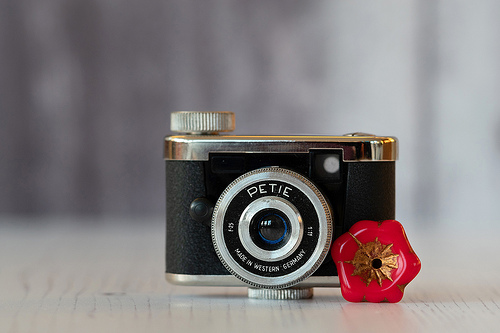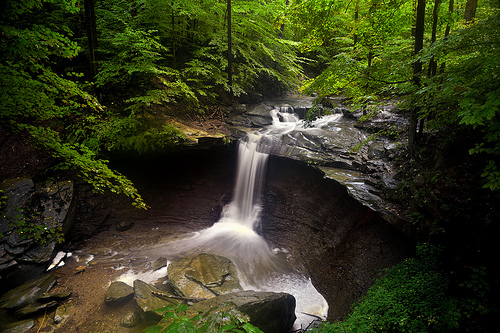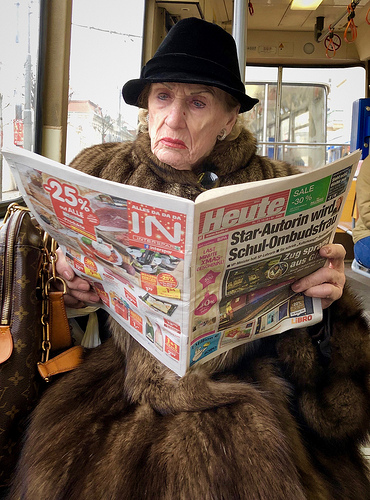Picture this. It’s 1978. You’re in your car which has no air conditioning and you have to manually roll the windows down. You turn the radio on and “Video Killed the Radio Star” by the Buggles comes on. You start jamming out. Now fast forward to 2019, the new song is “social media killed childhood”. Okay, so that may have been a bit extreme but this week in EDTC400 we debated the topic of whether Social media is ruining childhood or not with Lauren providing us with facts on the agreement side and Kylie giving information for the disagreement side.

Agree
Lauren provided us with a very strong argument for why social media is indeed ruining childhood. Points by Lauren and our class include:
- Social media is affecting mental health
- Youth may become depressed if they are not followed by a certain person or getting a certain number of likes on a post
- Read this article to learn more!
- F.O.MO. = Fear of missing out which a phobia youth may develop when they see friends partaking in activities in which they are not participating
- Youth may become depressed if they are not followed by a certain person or getting a certain number of likes on a post
- Digital footprint
- Youth are creating a digital footprint before they even know what one is
- Cyberbullying
- Social media is just one platform where bullying takes place
- Age Restrictions
- Many social media accounts like Snapchat for instance but children younger than this are forming accounts
- One question sparked in our debate was “Social media requires one to be at least 13 years of age to make an account, but parents are allowing children to make accounts much earlier. Ironically, the same parents are not allowing their children to watch a PG-14 movie when they are 13. Why is that?
- I couldn’t actually tell you the answer but if you have one, be sure to comment it!
- Whisper and Ask.FM
- These two apps are where people can post anonymous questions or statements which often included personal information which may lead to cyberbullying.
- Creativity
- If students see an idea online and copy it or add their own personal mark to it, is the student really coming up with their own idea or copying and adapting someone else’s?
- Documentation
- Are we documenting too much of our lives? Should we step out from being behind the camera and jump into the moment?

“Smartphones and Anxious Kids: Mental Health Issues and the iGeneration” focuses on the mental health aspect of social media. In this article, the term deindividuated communication is introduced. So, what does the term mean? According to the website deindividuated communication is “when they [youth] communicate via smartphone texting or via social media, they feel essentially faceless, absent or anonymous and unaccountable for what they are saying,”. Ultimately, this means youth are more willing to bully online because they would never say it to the persons face but when you do it online who really cares? Terrible view on the situation I know, but that is what cyberbullying is, it’s saying things you would never say to a person and the only way you are able to say it is online where one feels more powerful because it’s “just words”.
Also, students are not spending enough time in the great outdoors. I can speak for myself when I say being outdoors is rejuvenating for the mind and body. There have been studies on Green Spaces being good for one’s health so if social media is distracting youth from the outdoors, can social media be good for them?

“Is New Technology and Social Media Ruining Our Children’s Lives?” continues to keep the agreement side strong. It brings to readers attention that children are so consumed by social media and technology, they are “growing up with lack of key life skills such as being able to read or riding a bike,”. I learnt how to ride a bike way before I knew how to even turn on a computer. Much to my surprise, I learnt after reading this article “17 per cent of children under 3 own a smart phone or tablet,” which is interesting. I have a 3-year-old cousin who has an iPad, and while she played on it, it may not be in the fashion you are thinking of. She didn’t play a game on her iPad, she instead jumped on her iPad. So maybe technology isn’t as great as we expect?
Disagree
While Lauren may have been convincing on her side of the argument, Kylie stood tall against her argument that social media does not ruin childhood. Points raised by Kylie and our class discussion:
- Open doors
- Social media opens doors for youth such as allowing them to have a voice in a space where they are traditionally not invited into
- Mental health initiatives promotions
- For those who are struggling with their mental health, there are online platforms to let them know they are not alone
- Ex: KidsHelpPhone, #bellletstalk
- MOMO
- While Momo was threatening kids online, social media spread word of this creature initiating parents to talk to their children about internet safety and warn others of this challenging creature
- Traditionally, humans avoid social situations.
- Shaleen raised the point that humans once read newspapers on busses to avoid talking to others and the only element which has charged was what people were reading. Why is reading cellphones on a bus frowned upon but reading a newspaper isn’t?

“5 Reasons You Don’t Need to Worry About Kids and Social Media” is an article shared by Kylie. One reason provided by this article related to parents reducing their worrisome states caused by social media include “It can offer a sense of belonging”. Youth feel more connected and less isolated by talking to peers online. Another reason offered by this article was “It helps them express themselves”. Youth are free to upload anything they create online since it is easy. Users are able to hide their identity which allows students to express themselves without anyone knowing it is them. I have multiple friends who have Instagram pages showcasing their art, music, make-up, photography, etc… under usernames where followers will not find out the person’s identity.
“5 Reasons Why Social Media Might Actually Be Good for your Child”first point about social media allowing on to “keep up with friends”, is a point which hits home> Being away from home, I often can see what my friends are up to without talking to them every single day. I can see if my best friend actually went on her trip once she posts a Snapchat story or I can see my other friend doing well at golf at the university they are attending.
The Verdict
Overall, social media is all about balance. Youth are going to have social media accounts. I may not be a parent, but I do know I would rather know about my children’s social media activity than to be in the dust with it. Ultimately, with this debate, I side with Lauren. I do see social media as a means for ruining childhood, it may be a bias opinion since I didn’t have social media until I was 15 and technology was not a big part of my childhood (ask my parents, they will defend me if you don’t believe me). But then that can be argued I am trying to image childhood the way I experienced it. New flash Jayden, things change. It was a great debate with strong arguments from both sides.
Now here’s some questions I have for you to ponder.
- How old were you when you created social media accounts?
- Do you document everything? Or do you live in the moment?
- Is it better to experience a concert being a cellphone trying not to be too shaky or jumping around from the energy in the building?
- Do you ever go onto social media and still feel alone? Or do you feel like you belong?
Here are some other articles interesting to this topic but did not fit in with the topics I covered in this post! I highly recommend reading them if you are interested!

Hi Jayden,
You have done such a great job with this blog post! I agree that the debate was very back and forth and even though I stuck with my side, I cannot deny the potential social media has in the lives of children. Now if only we could ensure it is being used in positive ways, that would change everything!
In response to your questions, I relate to you in the sense that I did not have a lot of social media growing up. I think I was about 14 before signing up for anything, while many of my friends were ahead of me in jumping on board. To this day, I still try not to depend too much on social media and I prefer to live in the moment rather than always having to document everything that goes on in my life. With that being said, I do think that sharing to some degree is great, as it allows for me to stay connected with people, up to date on what’s going on it the world, and expose me to new ways of thinking. As you said, I think balance is the key word to consider here! I don’t think it’s “bad” to be extremely active on social media, but having that balance between online and offline activity is very important!
Thanks for sharing your thoughts, resources, and asking some great questions!
Lauren
Thanks for reading this post! It was for sure a tough debate this week. Like you, I often felt behind in the world social media where I created accounts a good 2-3 years after my friends. I am grateful though for that because they often go back and cringe at posts such as “like for a tbh” so I avoided that. I do enjoy the connectivity of social media, it helps me feel like I know what my friends are up to without having to text them every single day where carrying a conversation deems challenging as everyone is so busy.
Jayden, you did a wonderful job summarizing this weeks debate. I think your concluding statement where you talk about the need for balance is essential in today’s society. I think of social media use as I would as say something like watching Netflix or playing video games, a little bit is okay but binging or exessive use is not always the greatest-but that just my opinion. Like you, I did not have social media accounts until I was older, almost out of high school actually, so it is hard for me to imagine a childhood where social media is as big as it is today with so much focus being placed on it. I am glad I grew up when I did, but maybe thats just the nostalgia of childhood speaking.
Hi Jayden, you did a wonderful job summarizing this weeks debate. I really liked your concluding statement where you spoke about balance. I often think of social media like Netflix or video games, a little bit is okay but overusing or binge-watching isn’t always great. Like you, I didn’t have social media until I was older, almost out of high school actually and I am grateful for it. I had a childhood where I didn’t have to worry about the dangers of social media or cyberbullying. Instead, I grew up exploring the outdoors which I am grateful for, but maybe that is the nostalgia of childhood speaking.
Thank you for reading my blog! I often feel guilty when I binge-watching Netflix, I know it would be much healthier for me to physically read a book or go for a walk but with the quick access to Netflix and other internet-using things, its often difficult to break away from them
Hi Jayden,
I absolutely love your creative introduction to your post this week, personally, I’m a huge fan of the song. On a more serious note excellent work once again. You did a great job summarizing our debate and sharing your thoughts on some of the important big-picture ideas that were brought up during our class discussion such as addressing that the childhood we experienced may not be the ideal childhood. As Kaytlyn said, I am grateful that I experienced childhood without social media but that is definitely a biased stance.
Thanks for reading my post! It seems challenging to think of childhood changing as we often refer back to our own all the time. It’s a difficult concept to grasp but hopefully, as educators, we will come to realize this when it comes to topics related to technology.